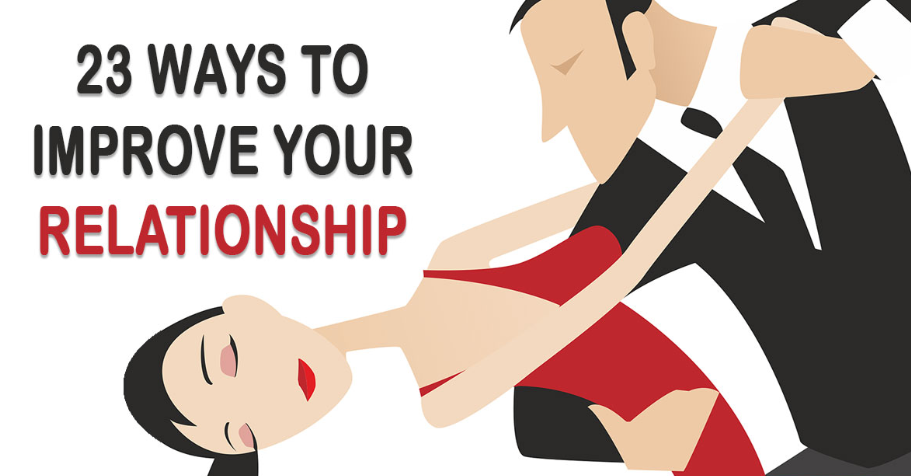If you need help getting a second date, it’s about more than just the lack of communication. You could also miss some critical clues that might prevent your next date from working out.
Paying attention to body language can be a great way to get a clear picture of whether or not he’s interested in you. If you notice them swaying or leaning away, it could mean that they’re not ready for a second date yet.
You’re not emotionally available.
Imagine you’ve been dating someone for a while, and everything seems to be going great. They share your values, you have common interests, and you genuinely enjoy their company. But after a few dates, you feel like you haven’t connected more deeply with them.
This can indicate that they’re emotionally unavailable, says licensed couples therapist Brooke Sprowl. Emotionally unavailable people are apprehensive about being vulnerable in a relationship, fearing rejection or control.
Often, this comes from past traumas and insecurities. Resolving these issues can help people become more emotionally available in their relationships.
Another sign that you need to be more emotionally available is if you’re always nitpicking your partner. Do you find things that irritate you about everyone you date, or are you mid-leap to conclusions before you’ve gotten to know them?
Suppose you’re constantly making jokes about superficial topics (like work or family) or never getting too deep into a conversation. In that case, that could indicate that you need to be more emotionally available. According to Sprowl, “emotionally unavailable people are apprehensive of being vulnerable in a relationship” and may turn things into a joke to avoid sharing their feelings.
They might also avoid sharing their emotions, sarcastically commenting on what they’re feeling, or denying their pain. Regardless of the reason, emotional unavailability can make a relationship extremely painful and draining for both parties.

They’re not emotionally available.
If they make you feel safe and secure one day, and then a week later, they disappear and never call or text you back—that’s probably a sign that they are emotionally unavailable.
When someone is not emotionally available, it’s almost impossible for them to connect with you genuinely. They’re unable to share their feelings and vulnerabilities, and they don’t want to hurt you in any way.
Despite this, emotionally unavailable people can also love and care for you. They may even watch for you more than you know.
So if you feel like you’ve lost your connection with this person, it’s worth taking a step back and asking yourself why they weren’t emotionally available for a second date.
“Emotional unavailability is a fear of emotional intimacy,” says Jill Sylvester, a mental health counselor and author of Trust Your Intuition: 100 Ways to Transform Anxiety and Depression for Stronger Mental Health.
This fear can lead to a variety of behaviors. They may avoid discussing sensitive topics or issues, keep their interactions superficial and light, or even turn every problematic situation into a joke, making it hard to communicate your emotions.
These behaviors are often a way for emotionally unavailable partners to protect their emotions and avoid putting themselves in vulnerable situations. They’re also a way to distract themselves from what makes them uncomfortable or upset.
It can be challenging to see if your partner is emotionally unavailable, but a few key signs can help you figure it out. If you recognize these signs, it will be much easier to decide whether or not to pursue a relationship with them.
You’re not emotionally available.
You might have met a guy who seemed interested in you, but that doesn’t mean he was emotionally available for a second date. Emotional unavailability often results from attachment issues or unhealthy relationship patterns.
Emotional availability is the capacity to understand your partner’s feelings and respond to them in a way that helps them feel safe and secure. It’s the same thing as having compassion for others, and it’s one of the most critical things in a relationship.

Relationship coach Elle Mace says that the most common signs someone is emotionally unavailable are if they avoid deep conversations, are reluctant to share their feelings with you, or don’t want to commit to you. They’re also likely to act selfishly and show poor empathy, which is the ability to understand and share others’ emotions.
Typically, the person with these issues avoids intimacy because they don’t trust you and are afraid to open up. They may have also learned that if they feel their feelings, it will cause you to shut them down or reject them.
They might also have low empathy, which is understanding and appreciating other people’s emotions. If this sounds like your partner, it’s time to explore the roots of their unavailability.
While it’s not always a simple fix, you can make a big difference in your relationship by learning more about the factors contributing to emotional unavailability and becoming more available. You can do this through a relationship coach or by talking to your partner about what you learn.
The most important thing to remember is that it takes time and patience. Working on small changes to build a lasting, loving relationship would be best. But the sooner you move towards your emotional goals, the faster you’ll get there.
They’re not emotionally available.
When a person is emotionally unavailable, they’re unwilling or able to share their emotions. Licensed psychotherapist Pam Shaffer says this can leave you feeling unheard and vulnerable.
They might brush off any negative feelings with a joke or sarcastic comment to keep you from being hurt or upset. They may even try to avoid the topic altogether, leaving you confused and alone.
It’s also not uncommon for emotionally unavailable people to fear intimacy or control, and they might be afraid to put themselves out there for fear they’ll get sucked into a toxic relationship. They might avoid discussing personal or relatable issues, says licensed couples therapist Brooke Sprowl.
In addition, they might need help getting excited about anything. This can be particularly difficult for intense, high-energy people.
Their lack of energy often stems from a lack of libido or naturally expressed desire. This doesn’t necessarily mean they don’t like you, but they have difficulty being enthusiastic about things.
Those who are emotionally unavailable tend to have difficulty connecting with other people’s emotional needs because they don’t explore their own emotions deeply, notes therapist Kimberly Jernigan. She adds that they tend to focus on the practical aspects of life instead of exploring their own internal landscape and expressing what they feel.
While it can be tempting to invest all of your emotional energy into a relationship that seems emotionally unavailable, you’ll eventually run out of fuel and feel emotionally exhausted. Knowing when to move on is essential, and finding someone who can genuinely connect with you is crucial.
They’re not emotionally available.
An emotional connection in a relationship is crucial, but an emotionally unavailable person may find it challenging to make that connection. Instead, they might prefer to date casually and maintain some distance. They might also find relationships hard because they cannot identify and honor their own emotions or understand the feelings of others.
According to Mark Fromm, Ph.D., a San Francisco-based psychologist, they might avoid a deeply emotional conversations and avoid intimate situations altogether, according to Mark Fromm, Ph.D., a San Francisco-based psychologist. They might also put off a commitment or initiate a new relationship, fearing that their partner will reject them or abuse them.
Jernigan says these behaviors often stem from past attachment wounds or fears of intimacy. She thinks they could result from childhood or teen trauma, such as rejection, neglect, or ridicule by parents.
When these wounds aren’t healed, they can impact a person’s ability to be emotionally available in a relationship. They might be unable to recognize or understand key emotional states, including anger and love.
It’s important to remember that this doesn’t mean a person can’t fall in love, just that they might have a more challenging time expressing their feelings and identifying their needs.
People with avoidant personality disorder, which differs from an avoidant attachment style, may be more likely to be emotionally unavailable. They may be avoiding relationships because they have experienced negative childhood experiences that made them fear being hurt or abandoned.
Regardless of what they might be hiding from you, it’s worth giving them space and allowing them to heal from their past. This will enable them to decide if they want to return to your life or are ready to move on.
Second Date

is an American author, blogger, and cybersecurity specialist based in Florida. He developed an interest in writing during his school years, which later led him to create content aimed at raising awareness about various forms of online scams, particularly in the world of online dating.
On his platform, Scam Service Report, Hall shares analytical articles and practical advice to help users recognize and avoid traps set by scammers on dating websites. He describes common scam scenarios in detail—such as quick declarations of love, urgent requests for money transfers, refusal to engage in video chats, and attempts to move conversations off the dating platform.



